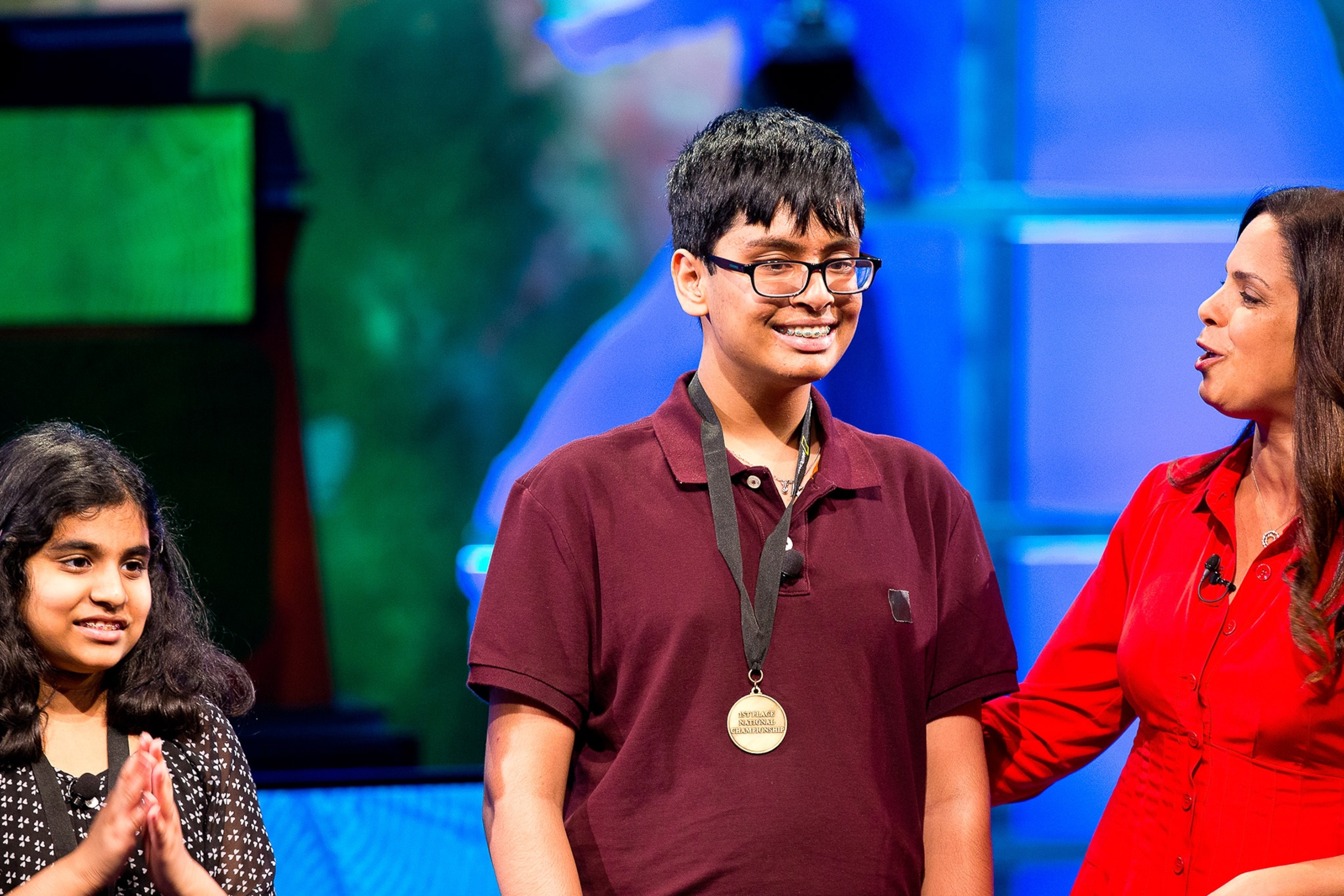
14-Year Old Wins National Geographic Bee Championship
Ten finalists from a field of four million contestants competed on geographic knowledge.
WASHINGTON — Updated at 12:10 pm ET.
You may have never heard of Tashkent, Telangana, or the Oresund Strait. But Karan Menon, 14, answered specific questions about those places to win the National Geographic Bee championship in Washington, D.C. on Wednesday.
The final question: If built, the proposed Grand Inga Dam would be the world's largest hydroelectric dam. Near the Inga Falls, it is on which African river?
Menon's winning answer: the Congo.
"I'm on top of the world right now," said the New Jerseyite, who competed against ten young finalists from across the U.S., in grades four through eight, for a trip to the Galápagos Islands and $85,000 in college scholarships (Menon won $50,000).
Menon bested runner-up Shriya Yarlagadda, 11, of Michigan, who missed only one question through the entire contest (about the Sea of Azov).
The competition was hosted by journalist Soledad O’Brien and will be televised on National Geographic Channel and Wild, starting on Friday night. (Meet last year’s winners.)
The finalists qualified for Wednesday's championship in a preliminary round on Monday that included 54 contestants from state and territory-level bees. Four million students competed in local geography bees this year from 11,000 schools, representing roughly 12 percent of U.S. schools.
Seven of the 10 finalists were repeat state winners, including two who are competing in the national bee for the third time.
The Power of Geography
"Geography helps prepare students to make the world a better place," National Geographic president and CEO Gary Knell told the Bee's live audience Wednesday. A recent survey found that three of four American eigth graders lack basic proficiency in the subject.
"The Bee is about teaching kids about the world and how it works," says Dan Beaupré, vice president of experiences in education and children's media for National Geographic.
"To be a Bee champion you have to be curious, have an understanding of the systems at work in the world, know how to apply information to real challenges, and be an effective communicator," he said. "It's all about our basic belief here at National Geographic that science, exploration and storytelling can change the world."
This week, the youngsters boned up on maps and textbooks and nervously explored National Geographic’s campus and the city.
This year’s finalists included Kapil Nathan of Alabama, Sojas Wagle of Arkansas, Nicholas Monahan of Idaho, Patrick Taylor of Iowa, Abhinav Karthikeyan of Maryland, Lucy Chae of Massachusetts, Shriya Yarlagadda of Michigan, Shreyas Varathan of Minnesota, Karan Menon of New Jersey, and Tejas Badgujar of Pennsylvania.
"It takes a lot of hard work, preparation, and being able to relax at key moments," said Bee competitor Yarlagadda.
During one nail-biting moment Menon challenged the judges after he answered taconite when O'Brien had wanted iron ore for the name of a mineral-rich deposit in the Mesabi Range. The judges agreed and granted him the point.
Improving Geography Literacy
National Geographic started the Bee in 1989 to improve geographic literacy among young people. Michael Jordan majored in geography and Mother Theresa taught it, the organizers noted. Alex Trebek served as the host for the first 25 years.
Test your own geography knowledge with the GeoBee Challenge online or through the “National Geographic GeoBee Challenge” app.